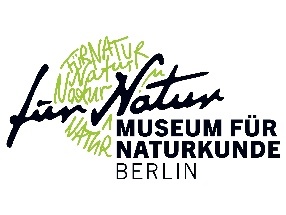The GFBio Data Center MfN is administered and managed by the newly evolving Science Programme "Digital World and Information Science" at the MfN. The central data management system for the zoological and paleontological collections is Specify (see also here). MfN represents Germany in the DINA-Consortium aiming at building an open and modular collection data infrastructure on top of Specify6 for the needs of European institutions. Other data domains, e.g. mineralogical data, bibliographic data, and historical archive data, are managed by independent database instances. MfN's scientific multimedia files are managed internally using the commercial Digital Asset Management System Cumulus (Canto) and EasyDB (Programmfabrik) for 3D media. Important developments in the area of biodiversity informatics supported by MfN are ABCD 3.0, the ABCD extension EFG for paleontological and mineralogical collection data and its presentation layer, the GeoCASe portal, as well as the BioCASE Monitor Service (BMS), a tool for monitoring data provision and quality checks of individual ABCD(EFG) mappings.
Scientific data curation services (incl. taxonomic services) The taxonomic and scientific expertise at MfN is that of its employed and associated scientists. Research is, to a large extent, based on our zoological, paleontological and mineralogical collections. MfN curates the following data: (1) MfN collection related data, such as collection specimen data, DNA (DNA collection - exceeding MfN physical collection), collection metadata, and media representations of MfN collection specimens including additional metadata; (2) project related data (MfN involvement, leadership or partnership, national or international), such as observational data (e.g. ATBI). MfN is an active provider of scientific data and media to international (scientific) platforms and networks, such as Global Biodiversity Information Facility (GBIF, www.gbif.org), Europeana ( www.europeana.eu), GeoCASe ( www.geocase.eu), DNA Bank Network ( www.dnabank-network.org) / Global Genome Biodiversity Network (GGBN, www.dnabank-network.org), and BHL-Europe ( www.bhl-europe.eu). MfN is also providing a number of Data Services to the community: Fauna Europaea: MfN is currently hosting Fauna Europaea ( www.fauna-eu.org), an information system and taxonomic service for all species currently known in Europe. GBIF: MfN is responsible for the GBIF-D nodes "Insekten" and "Fossilien" and thus part of the German contribution to GBIF International. This task entails hosting, mobilization and provision of biodiversity data to GBIF for other German (entomological and paleontological) collections. GeoCASe: MfN is hosting and maintaining the Geosciences Collection Access Service (GeoCASe, www.geocase.eu), a service based on the ABCD extension EFG for the retrieval of collection data related to geo-scientific collection throughout Europe. GloBIS: MfN is hosting, maintaining and managing the Global Butterfly Information System (GloBIS, www.globis.insects-online.de), a taxonomic backbone for the butterfly families Papilionidae (Swallowtails) and Pieridae (Whites). ATBI+M: MfN is hosting and maintaining the site All Taxa Biodiversity Inventories + Monitoring in the Mercantour and Alpi Marittime natural parks ( www.atbi.eu/mercantour-marittime), a database on all observed species occurring in a defined area including information on the collection event, abundance and biology. The data originates from the EDIT project. anymals+plants: MfN collaborated in the development of the Smartphone App anymals+plants ( www.anymals.org), which allows users to document species occurrences/ observations and also provides the user generated data to GBIF. Open Drawer Portal: MfN will host, maintain and manage an international (insect) drawer portal ( eos.naturkundemuseum-berlin.de), which enables scientific and non-scientific users for cross-institutional searching digital representations and metadata of collection objects stored in drawers (mainly insects). | 